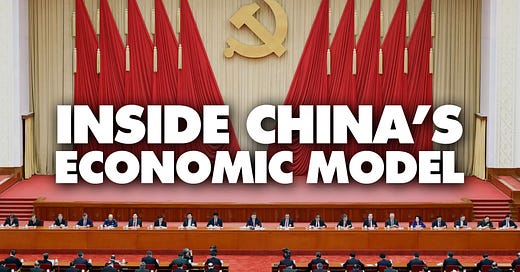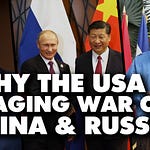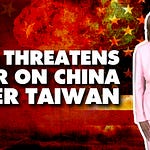Multipolarista editor Benjamin Norton discussed China’s socialist model with economist John Ross, a senior fellow at the Chongyang Institute for Financial Studies at Renmin University of China.
Ross criticized Western left-wing academics like David Harvey, who have argued that China’s economy is capitalist or even neoliberal.
“The Chinese model has nothing to do whatever with neoliberalism. And that’s why it produced totally different results,” Ross said.
“China has raised, by World Bank criteria, since 1978, 850 million people out of poverty,” he emphasized. “This is the greatest contribution to human rights in the entire world.”
“There has never been such an alleviation of poverty in the whole of world history,” he noted. “It’s more than 70% of all those people taken out of poverty on the world scale.”
Ross continued: “You can see it most clearly by looking at the state sector within the Chinese economy. The state sector within the Chinese economy accounts for around 40% of the investment in China. And that is concentrated in all the large companies. The largest companies in China are state-owned companies, by far.”
“This means that the economy can be controlled by lifting the level of investment by the state up and down. And that’s the way the economy is run.”
“Where does the word socialism come from? It comes from ‘socialized,'” he explained. “Of course the economy develops in a very uneven way. You have very, very large, that is highly socialized companies, which are the most powerful, the most developed, and we may say the commanding heights of the economy. And then you go down to single-family farms, single-family shops, etc., which are not highly socialized.”
“China does differ from the Soviet Union,” Ross pointed out. “The Soviet Union had what I would call an administered economy. Every single detail down to the prices were controlled.”
“China doesn’t do that. The way China runs its economy is that it moves the level of state investment up and down.”
In the Soviet Union all industries were owned and run by the state, “whereas China took what you would call the commanding heights, or if you want to use Marx’s term, the most socialized sections of the economy are taken into the state.”
“This means in particular, China, the Chinese state, owns the largest companies. It particularly dominates the banks. All the large banks in China are state-owned. The land is state-owned. The energy system is state-owned. The largest manufacturing companies are state-owned.”
“But it doesn’t want to take over, and shouldn’t take over incidentally, every little local corner shop, every single restaurant, etc. There, that can be done perfectly well by individual people; in fact it will develop more efficiently.”
Ross, who previously served as director of economic policy for London Mayor Ken Livingstone, also discussed the sabotage of leftist Labour leader Jeremy Corbyn and the party’s turn to the right.
“If you look at the situation, what was done by the Labour Party to Corbyn, it was a flat out vilification and falsification of him, ridiculous charges such as that he was an anti-semite. Jeremy Corbyn is the most determined anti-racist,” Ross said.
“The idea that the Labour Party was institutionally anti-semitic, or that Corbyn was anti-semitic, was absolute nonsense, an absolute frame up.”
“And now what has happened is we now have a very right-wing, I’m afraid, leadership of the Labour Party, because this attack on Corbyn was not successfully defeated, which has very terrible consequences.”
















Share this post